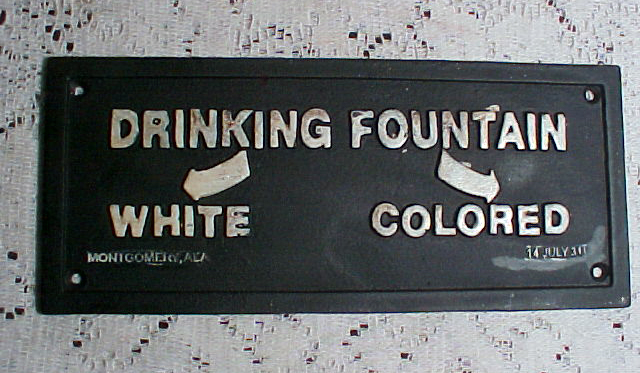The stereotypes are something very common in this world nowadays; you
can find stereotypes at the school, job, university, in cultural aspects, etc. But
stereotypes are something that comes from many years ago into our society.
One of the stereotypes cases that I would like to show in this post,
it’s the case of racial segregation, present along the humanity history. In the
60’s, the case of the segregation was something very important in the United States;
the fight between white people and black people was something of everyday.

In this situation I would like to mention to Ray Charles as an example.
Ray Charles was a famous musician that was born in the state of Georgia, in the
United States. He played Jazz music mixed with a lot of different music styles
and since he started his music career, in a very short time he started to be
known in the whole country. But the important fact that I want to talk about
here, is that Ray Charles was against the racial segregation of those years.
In 1961, Ray had a show in Georgia and outside the building there were
black people with signs boycotting segregation. The white people were sitting
inside the building waiting for the show to begin, while black people had to watch
from the streets. One man stopped Ray and told him to make a difference and not
perform for the crowd. Ray agreed with the man and didn’t play. The owner of
the venue sued Ray Charles for not playing and because of this He was banned from
the state of Georgia. Here is an example of what happened in that year…
Ray Charles was an example in what breaking stereotypes means,
He didn’t care what was going to happen with him after that choice, he
just did it.
To break stereotypes is something possible, even when people in the past
thought that was something impossible, nowadays we can notice that the
stereotypes are decreasing, but it is still a fight that we just can stop with
our actions, making this world a better place to live.
So now, what do you think about this, classmates? How can we destroy
stereotypes?
I really enjoyed reading your post! It is very original! I didn't know about the reaction he had in that occasion. I admire what he did. He was sympathetic with black people and I really appreciate that kind of persons!
ReplyDeleteAnswering your question.. I believe that we definitely can destroy stereotypes with actions like the one Ray had in that occasion. He didn't ignore the situation. He acted. And that's what we have to do, to don't ignore the facts but doing something about it! If we all do little actions we can change the world:)!
that kind of people * hahaha
ReplyDeleteI think your example was one of the best I could ask for.
ReplyDeleteRay Charles was one of the main exponents of soul, R&B and jazz music; and his legacy will never be forgotten.
He, as one of the most important figures of the music history, tried to help to break this segregation so intense back in the sixties (and years before), and even when we still live in a world full of stereotypes, his decision to do not contribute to this difference laid by human stupidity is so appreciated nowadays.
He wasn´t really banned in Georgia back then, after he gave up his performance, he just had to pay compensation to the promoter.
To break an stereotype is necessary to face them. How? Well, we have to learn to not fall in generalizations based on limited information about people we don't know.
By the way, I have to say thank you for putting Ray Charles as your example, I think people should know how music and their pioneers have influenced in people's thinking.
As
ReplyDeleteHow can we destroy stereotypes? Respecting each other, this is the most important thing. Everyone is different to each other, and we have to accept this difference for a good coexistence. We have to open our minds to the difference things happening to us and to the world. We can change the world as Ray Charles did, he is an amazing good example. Because talent doesn't look your color skin, nationality or whatever, it's just look in the correct people, in the correct moment.
ReplyDelete